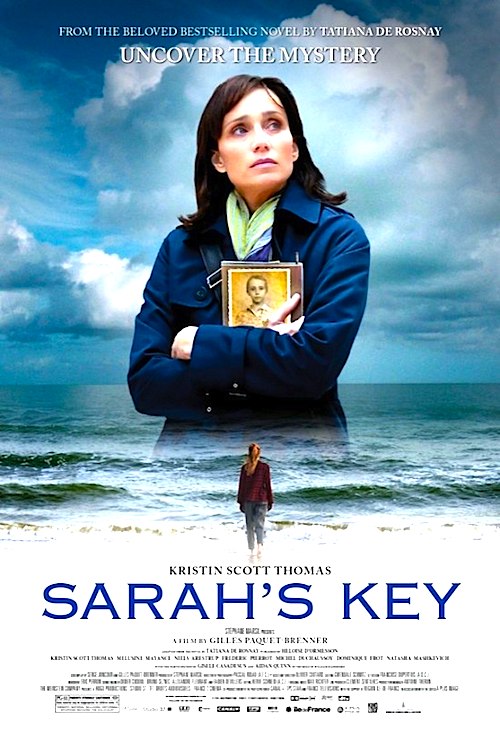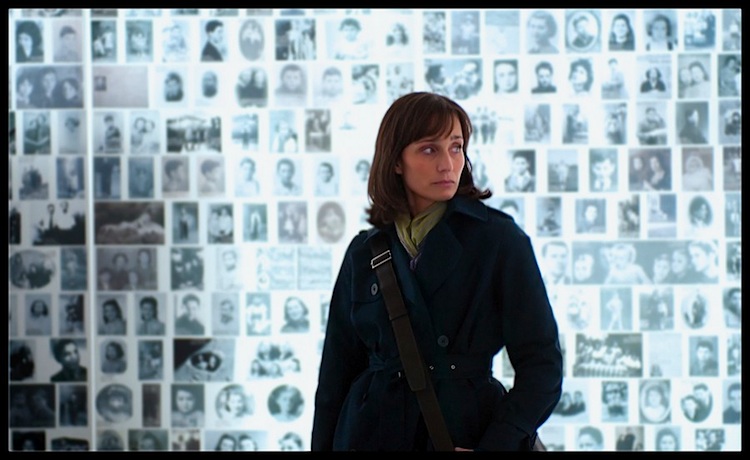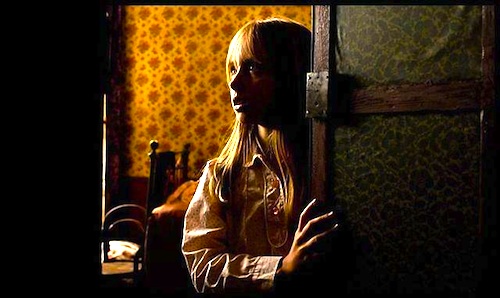 By Patricia Ducey. The year is 1942; the place, a temporary camp for French Jews just outside Paris. As French gendarmes tear infants away from their hysterical mothers, the children and mothers panic and stampede the police. The officer in charge perceives that the rioting will soon spiral out control. “Cooperate,” he bellows soothingly to the distraught families, “and all will be well.” The crowd calms and a tense order is restored; the women and able-bodied children file away to the waiting train and disappear inside, never again to see the toddlers they left behind.
By Patricia Ducey. The year is 1942; the place, a temporary camp for French Jews just outside Paris. As French gendarmes tear infants away from their hysterical mothers, the children and mothers panic and stampede the police. The officer in charge perceives that the rioting will soon spiral out control. “Cooperate,” he bellows soothingly to the distraught families, “and all will be well.” The crowd calms and a tense order is restored; the women and able-bodied children file away to the waiting train and disappear inside, never again to see the toddlers they left behind.
As I watch this heartbreaking sequence another image comes to mind, perhaps because the ten-year anniversary approaches: the passport image of a 9/11 suicide hijacker. I am struck by the memory of his similar, chilling admonition to “stay quiet and you’ll be okay” as he steered the plane towards the Towers. I now understand why the lies of tyrants and murderers are so simple and so timeless – because they play upon a human nature that rejects the terrible knowledge of such evil. Those simple lies work. This vulnerability resonates throughout the new film Sarah’s Key into the present day, elevating the film from Lifetime bathos to must-see drama.
French director Gilles Paquet-Brenner adapts the best selling novel by Tatiana de Rosnay and brings it successfully to life. His Sarah’s Key whittles down the story to an effective through-line, eliminating some of the novel’s distracting twists and turns – and at the same time fleshing out the characters through a smart and economical script, expert actors and rich cinematography. We feel in the end that this novel had to be a movie, this very movie.
The film begins as Julia Jarmond, an American journalist married and living in Paris, takes on a story assignment about the 1942 roundup of Jews in Paris. She soon discovers a paucity of information: the site of the roundup was torn down years before and only one photograph remains of the incident, buses waiting outside the velodrome. The government has no written records or photos of what went on inside.
The Parisian government willingly collaborated with the Nazis, and prepared well for the morning when they knocked on the doors of thousands of apartments and herded the Jews inside into transports that delivered them to the famous indoor bicycle stadium. These French Jews remained at the Velodrome d’Hiver for days in stifling heat with no sanitary facilities or adequate water; many died there. The rest were eventually transported to camps outside Paris and then to the trains to take them to camps they were told, as usual, were work camps.

As Julia interviews private individuals still searching for survivors and records, she discovers that her in-laws may have taken over an apartment in the Marais left empty by one such deported Jewish family. The concurrent story of that Jewish family, especially of the daughter Sarah – who hides her little brother in a secret closet in the apartment – intercuts with the present day events until the strands finally come together.
Kristin Scott-Thomas plays Julia, the American living in Paris with her French husband, and handles both the investigative journalist role and her domestic currents with equal skill and heart. The script by Serge Joncour concentrates on her persistence and emotional openness so that we simply cannot imagine anyone else playing her. But young French actress Melusine Mayance as Sarah Starzynski simply amazes; she fills the screen in a pitch perfect performance, full of love and sorrow, courage and intelligence. Wisely, the director allows Sarah’s tragic 1942 story to emerge as the foreground story, while Julia’s present day difficulties provide an echo of the past and a reminder of some eternal truths.
The film asks two important questions. At one point, Julia challenges a colleague, critical of the complicit wartime French, “What would you do?” In the face of the brutal reprisals by the Nazis, and after relentless propagandizing by the collaborationist government, I don’t know what I would do. It must be said that many French people – including Catholic priests – protested the roundups, and many did resist the occupation. Yet several modern documentaries like The Lesson Plan and The Third Wave (see here) underscore the vulnerability of the human spirit to fascistic manipulation, and so it is difficult to flatter oneself today and condemn all the WWII Europeans.

It is important to think and talk about these moral dilemmas today as we face our own existential threat. Again I think of the parallels with 9/11 – the heroes of Flight 93 were at least blessed through our instantaneous communication system with the knowledge that “be quiet and you’ll be okay” was in fact a monstrous lie. And so they fought back. Some Jews fought back as well in the 1940s, of course – for instance, in the Warsaw Ghetto. But France and Germany in the 1940s had only rumor and propaganda to rely on, and the entire population was enervated by decades of war and instability, vulnerable to the incremental introduction of a reign of brutality – this gradualism, of course, being the strategy of the Nazis all along.
Like The Debt, reviewed here at Libertas by Joe Bendel, Sarah’s Key also asks “what is truth” and our responsibility to it. Until some fifty years after the war the Vel’ d’Hiv incident was officially repressed, although French President Jacques Chirac eventually apologized for French complicity. Yes, the French were guilty, but the most important truth this story brings to light is the truth that human nature itself contains the possibility of evil. Evil is not the exclusive province of any one country or religion or race. And so we must remember, and resist when evil inevitably presents itself.
Young director Paquet-Brenner knew little of Vel’ d’Hiv before he read the novel (see here) and dedicates the film to several relatives his family lost in the Holocaust. Sarah’s Key, like The Debt, examines the Holocaust from a vantage point some 70 years on, as the last witnesses pass into history. This film is a testament to both human cruelty and courage, instructive as ever – and necessary, as we approach our own time of remembrance and rededication.
Posted on September 6th, 2011 at 12:08am.
History repeats itself. Israel, and by proxy, Jews, are today demonized by European governments and citizens and by the left and even the left-leaning middle in the USA. The question, “What would you do?” is entirely relevant today.
It sure is. And I think history repeats itself because human nature is immutable.
This is a wonderful piece, Patricia, very touching. I can’t believe it’s been ten years since 9/11, but what you say is really true. The whole line of “be quiet and you’ll be OK” is a lie that we must all fight. Passivity is what all evil counts on to achieve its ends. It’s heartbreaking that this happened to the Jews, and unfortunately it’s happening again to the people of Israel, America, and all other countries that believe in human rights and democracy. They’re being targeted by radical Islamic terror just for existing. The great thing about this country is that we still have people who are willing to be brave and speak out. That’s why we must always keep exercising our freedom of speech.
Thank you. Yes, I agree there is something about our culture that makes us more suspicious and less accepting of authority. Maybe Europeans at that time were so used to centuries of monarchs that they tried to work around or ignore the growing evil.
When I was last in Europe, the young French seemed to love us. I think through media, people all over the world are emulating our independent streak. And that’s a good thing.
I suppose you can make an argument that you don’t really know what you’d do until you’re in that position. But equally valid is this: If you are not willing to die for your convictions, then they are not worth very much, since, as we can see from the French example (for one), when and if it ever comes to it, you will bend.
Right, Matt, but I think tyrants fool you into thinking you are not making such a big decision when, for instance, when the Nazis banned Jews from any involvement in the firearms business. The gradualism is the problem.
BTW Hitchens has a very good article in Slate on the simplicity of evil. The lack of nuance required to understand evil is what struck me about these movies.
http://www.slate.com/id/2303013/
Agreed. Also, this is why it is so dangerous that it is virtually impossible to talk about this “gradualism” with most people. It may not be called “political correctness” anymore, but the reality is that there are a great many things that are just not acceptable to talk about in polite company (I am continuously getting myself in trouble with this). Any discussion of the greater implications of some small detail, such as your example of Jews being banned from firearm commerce, is met with silence and disdain from a great many people. They just won’t talk about such things and they wonder why on earth you would want to. It’s considered rude to talk abstractly about the implications of how people choose to live. After all, isn’t everything relative, anyway? This silence is fertile ground for gradualism to take root until eventually, it’s not so gradual anymore. And then, just like in the 1930s, the people who once thought they walked the moral high ground will be the same people that are either indifferent to or actively participate in moral atrocities, simply because they have just never thought about the implications before.
Very true. Thus the importance, I think, of always acknowledging and support the truth. “Never forget.”